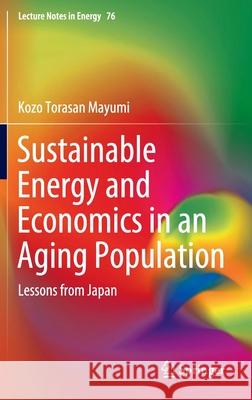Sustainable Energy and Economics in an Aging Population: Lessons from Japan » książka
topmenu
Sustainable Energy and Economics in an Aging Population: Lessons from Japan
ISBN-13: 9783030432249 / Angielski / Twarda / 2020 / 220 str.
Sustainable Energy and Economics in an Aging Population: Lessons from Japan
ISBN-13: 9783030432249 / Angielski / Twarda / 2020 / 220 str.
cena 523,30
(netto: 498,38 VAT: 5%)
Najniższa cena z 30 dni: 501,19
(netto: 498,38 VAT: 5%)
Najniższa cena z 30 dni: 501,19
Termin realizacji zamówienia:
ok. 16-18 dni roboczych.
ok. 16-18 dni roboczych.
Darmowa dostawa!
Kategorie:
Kategorie BISAC:
Wydawca:
Springer
Seria wydawnicza:
Język:
Angielski
ISBN-13:
9783030432249
Rok wydania:
2020
Wydanie:
2020
Numer serii:
000444183
Ilość stron:
220
Waga:
0.51 kg
Wymiary:
23.39 x 15.6 x 1.42
Oprawa:
Twarda
Wolumenów:
01
Dodatkowe informacje:
Wydanie ilustrowane











